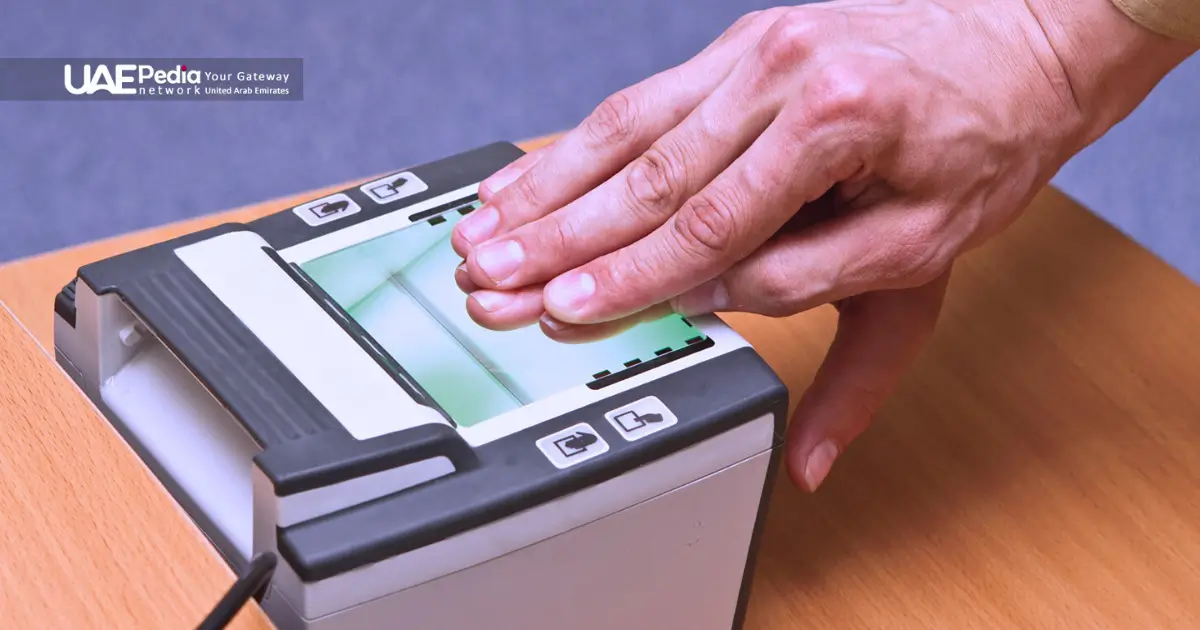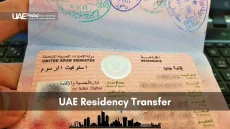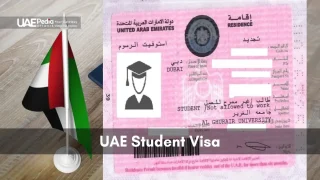UAE Immigration Biometrics has changed how we check identities in the United Arab Emirates. It affects how people live and work there. It also makes the country safer.
The Emirates ID system now uses biometric data. This makes getting visas and permits easier. It’s a big step forward in managing who lives in the UAE.
Did you know? By April 2022, the UAE stopped using visa stickers. Now, the Emirates ID is the only proof you need to live there. Find now Everything You Need to Know About it.
What is the UAE Immigration Biometrics

UAE immigration security has changed with biometric screening. This new system makes identity checks more accurate and quick.
Definition and Purpose of Biometric Authentication
Biometric authentication in the UAE uses unique physical traits to check who you are. It has many uses:
- Reliable identification of individuals
- Enhanced border security measures
- Streamlined access to government services
Components of UAE Biometric Data Collection
The UAE’s biometric data system has several parts:
- Iris scans for capturing unique eye patterns
- Fingerprinting of all ten fingers
- Facial recognition technology
Together, these parts make a detailed biometric profile for each person.
Integration with Emirates ID System
The Emirates Identity Card system works closely with biometric data. This teamwork brings many advantages:
| Feature | Benefit |
|---|---|
| Quick identity verification | Faster access to services |
| Secure data storage | Protection against identity theft |
| Seamless government interactions | Improved efficiency in administrative processes |
The biometric screening in the UAE takes about an hour. After that, people usually get their Emirates Identity Card in 3 to 5 days.
Biometric Registration Process and Requirements
The UAE immigration procedures include a crucial step: biometric data collection. This process ensures accurate identification and enhances security measures for residents and visitors alike.
Required Documentation for Biometric Submission
When preparing for your Emirates ID biometric appointment, gather these essential documents:
- Valid passport
- UAE residency visa
- Recent passport-sized photos (40 x 35 mm, white background)
- Original expired passport (for renewals)
Biometric Collection Centers and Locations
UAE biometric registration centers are conveniently located across major cities. You’ll find facilities in Dubai, Abu Dhabi, Sharjah, and other emirates. These centers offer flexible hours to accommodate various schedules.
Step-by-Step Registration Procedure
Follow these steps for a smooth biometric renewal for UAE residents:
- Book an appointment through the ICP Emirates ID website or UAE Pass app
- Visit your chosen center at the scheduled time
- Submit required documents
- Complete fingerprinting and facial scanning
- Pay applicable fees
Processing Times and Validity Periods
After completing your biometric scan, expect to receive your Emirates ID within 3 to 5 days. The validity of your biometric data UAE record aligns with your residency status. For UAE nationals aged 15 and above, ID cards are valid for five or ten years, with different associated fees.
| Applicant Type | Processing Time | Validity Period |
|---|---|---|
| UAE Nationals (15+ years) | 3-5 days | 5 or 10 years |
| Expatriate Residents | 3-5 days | Linked to visa validity |
| GCC Nationals | 3-5 days | 5 years |
Conclusion
UAE biometric rules are key to its immigration system. They make things safer and easier. The Federal Decree Law No. 45 of 2021 (PDPL) helps keep biometric data safe for everyone.
Secure biometric systems in the UAE are very important. They follow strict rules for keeping and sharing data. This makes sure everyone’s information is protected.
The role of biometrics in UAE immigration is huge. Airports like Abu Dhabi and Dubai use facial recognition. This makes checking travelers faster and safer.
This shows the UAE’s dedication to using new tech for better security. It also makes traveling easier for everyone.
But, businesses face many legal challenges. They must follow strict data protection rules. This includes using encryption and keeping data anonymous.
Fixing biometric problems in the UAE means doing regular checks. It also means having a Data Protection Officer. The UAE is always working to improve its biometric systems. It tries to balance new tech with keeping people’s privacy safe.



















